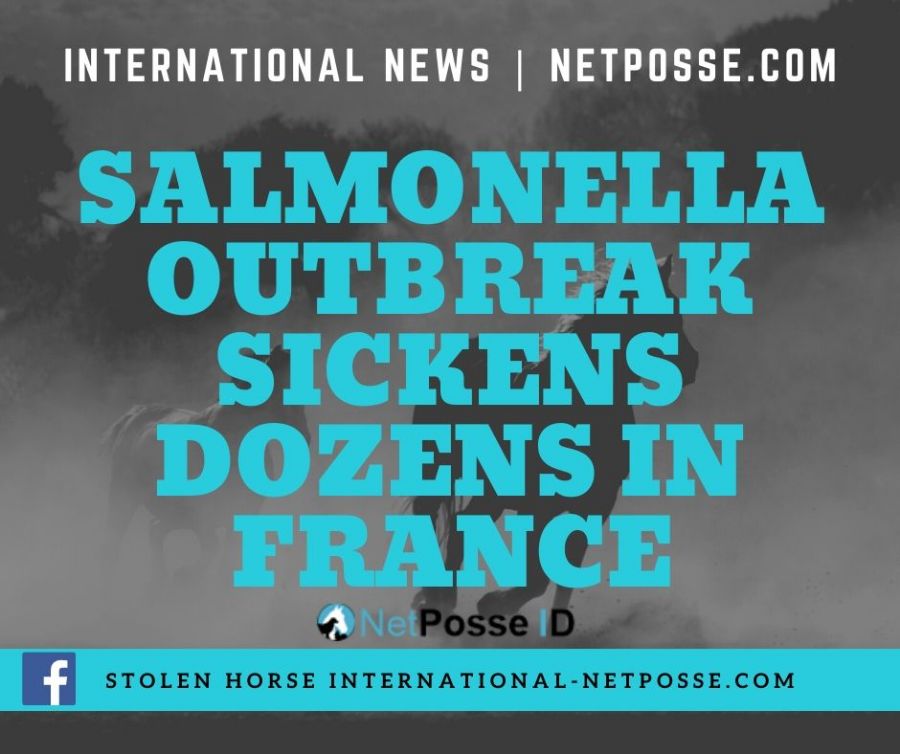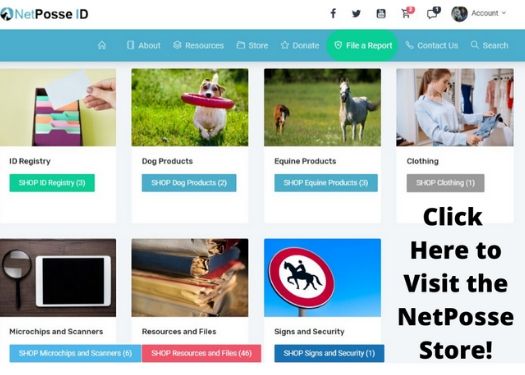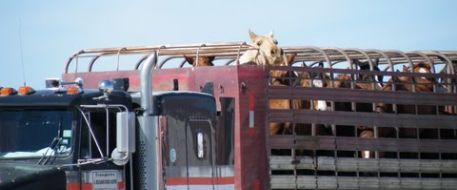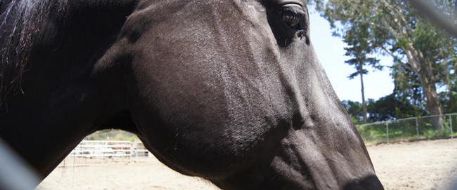We are sharing this with you today because we want you to understand how vitally important it is for us to reach out to you nationally as quickly as possible once your horses are stolen, lost or have gone missing.
A salmonella outbreak sickening 25 people in September, 2019 in the Hautes-de-France region of France has been linked to tainted horsemeat sourced from Romania. Nine people were hospitalized, two with severe complications. Symptoms lasted from 2 to 21 days, with the mean hospital stay lasting 8 days. Thankfully, no one died.
An investigation traced the source of the meat back to a Belgium wholesaler, supplied by a slaughterhouse and meat cutting operation in Romania. The meat was also distributed to Austria, Germany, Italy, Luxembourg, Netherlands, Sweden and Vietnam.
Although the European Union banned the importation of horsemeat from Mexico in 2014, the 11 federally-certified slaughterhouses still supply a small percentage of the meat to Romania, where it is cut and sold for domestic consumption and export. The seven countries with the heaviest consumption of Mexican horsemeat are Russia, Hong Kong, Egypt, Japan, Vietnam, Kazakhstan and Belgium. Federally-certified Mexican slaughterhouses are located in the states if Aguascalientes, Coahuila, Chihuahua and Zacatecas. American-owned horses provide 87 percent of the horsemeat exported from Mexico, with 53,947 American horses transported across Mexico’s border for slaughter in 2019. The figure for 2018 was 70,708. (USDA Market Figures).
Canada’s biggest customers for horsemeat export are Japan, France, Switzerland and Belgium, with a small percentage of domestic consumption found mainly in Quebec. The EU is now considering banning horsemeat imports from Canada for the same reasons the Mexican ban was put into place: no medical histories, little to no withdrawal time for drugs, poor sanitation and slaughter practices, putrid living conditions in the holding pens and horrific transportation abuses for the animals involved. Canada’s figures for American slaughter horses are harder to obtain as the slaughterhouses are privately owned by one family. However, figures for 2016 cite 54,147 crossing the US border into Canada for slaughter.
While opinions on horse slaughter differ, over 80 percent of Americans find the practice cruel and abhorrent.
NetPosse is here to help you keep your horses safe and help you find them when they have been stolen, have gone missing or are lost. We provide comprehensive reporting and networking services for these horses, volunteer assistance in identifying them in auctions, sales and kill pens, an All-Equine ID record-keeping database to help prove ownership, and of course our own microchip kits and scanners. Let us help you keep your horses safe.
Purchase your equine or pet microchip kit in our NetPosse Store. ID your furry friend today. All proceeds support our victim's services
and educational outreach programs.
Stolen Horse International provides news and other resources for free on this website. As a charitable organization we survive on the kindness of people like you. Please consider donating to help fund the organization or purchasing a NetPosse ID for your horse, dog or cat to help protect your beloved animals!
Debi Metcalfe

Debi Metcalfe
Founder | debi@netposse.com








Comments